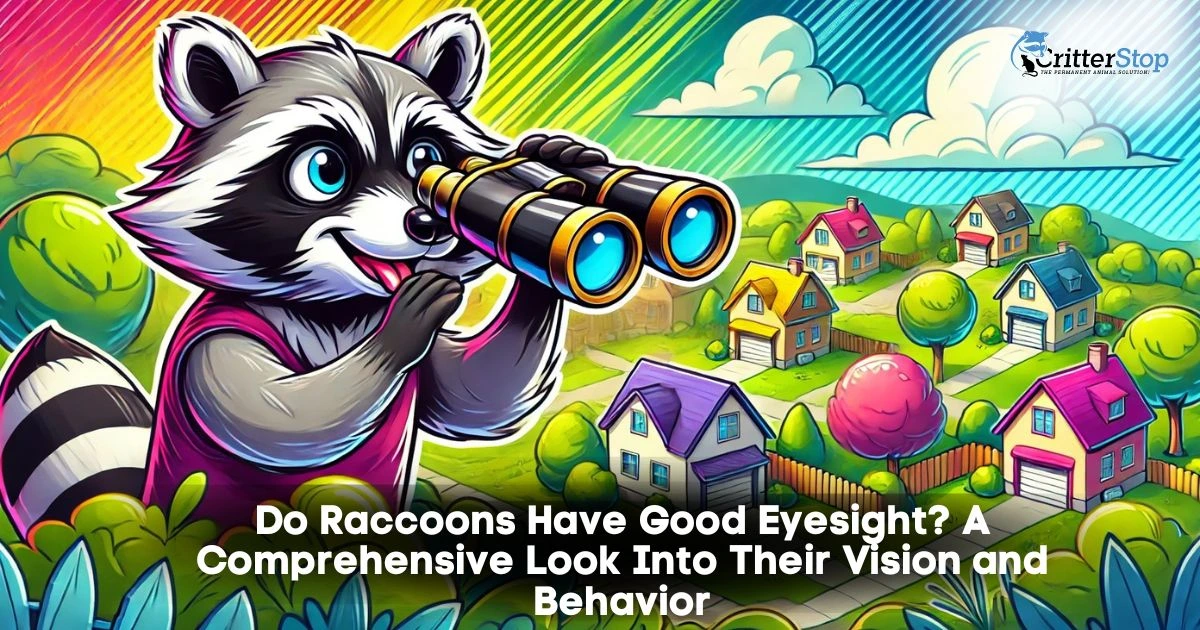
Raccoons are intelligent, adaptable creatures that have captured the curiosity of many due to their distinctive black "mask" and nocturnal habits. However, one of the most intriguing aspects of these animals is their vision. Do raccoons have good eyesight, and if so, how does it help them thrive in the wild and urban environments? This article will dive deep into raccoon vision, comparing their eyesight to other nocturnal animals, exploring their behavior, and explaining how they interact with humans and their environment.
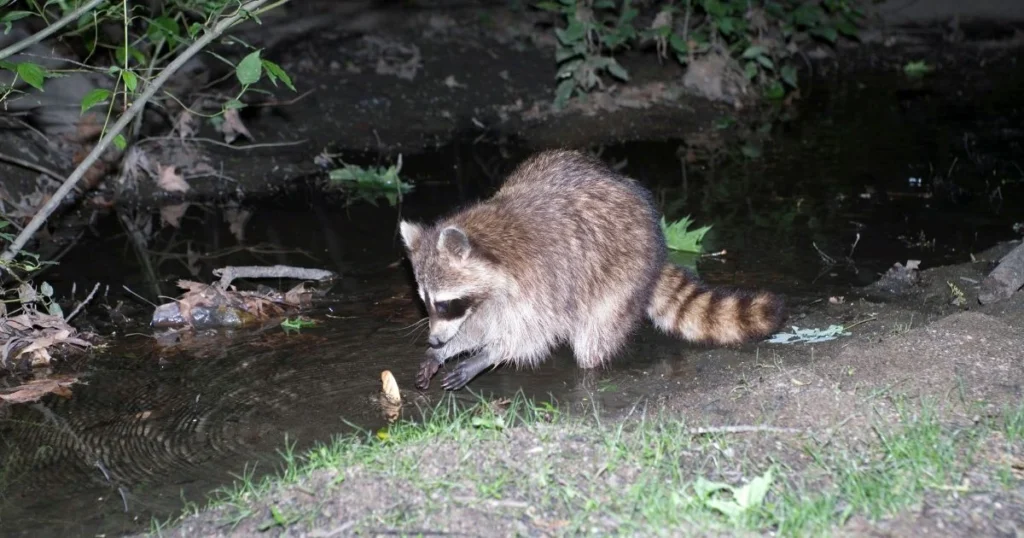
Raccoons are nocturnal, meaning they are most active at night. Their vision is adapted to low-light conditions, enabling them to forage and navigate when the world around them is dark. The secret to their vision lies in the tapetum lucidum, a reflective layer behind the retina that enhances light reception. This allows them to see in conditions too dim for humans to navigate.
The tapetum lucidum is the key to raccoons' ability to see at night. This reflective layer of tissue acts as a mirror, bouncing light that passes through the retina back into the eye, giving raccoons a second chance to capture even faint amounts of light. This feature is common in many nocturnal animals and is why raccoons' eyes glow when caught in headlights or a flashlight beam at night.
Thanks to this adaptation, raccoons can:
However, while their night vision is quite sharp, raccoons are not equipped to see in total darkness. They need ambient light from the moon, stars, or artificial sources to maximize their vision.
While raccoons are well-equipped for nighttime activities, their vision during the day is far less impressive. Their eyes are susceptible to light, and their pupils contract significantly in bright conditions to limit the amount of light that enters. This makes their vision less sharp during daylight hours, though they are by no means blind. Raccoons can still see during the day but are less comfortable and more reliant on their other senses, like smell and touch.
Additionally, raccoons have dichromatic vision, meaning they can only perceive two primary colors. This limits their ability to distinguish between specific colors, especially in daylight. However, their ability to detect motion and contrasts makes them highly attuned to movement, which is more important than color differentiation for survival.
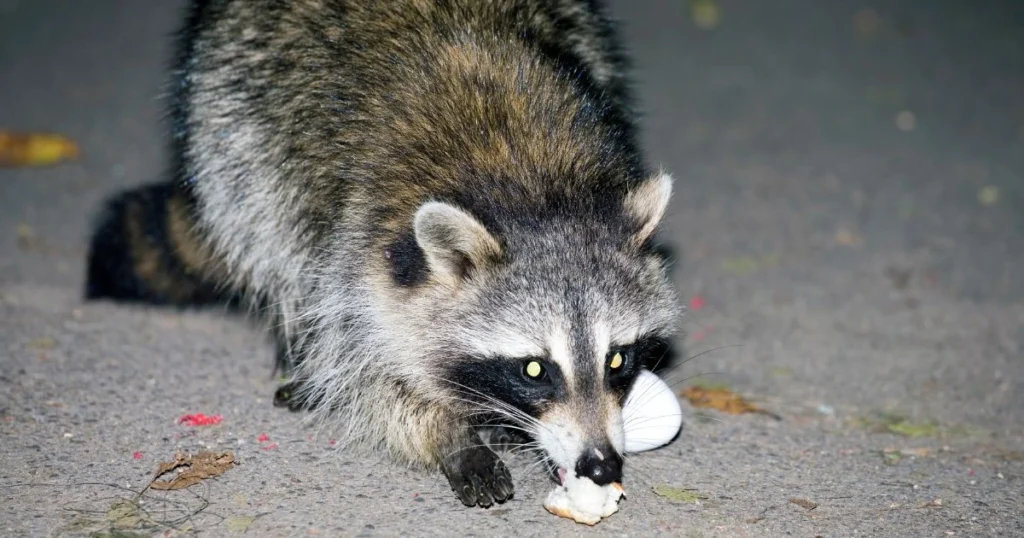
Raccoons rely on their vision in several vital ways to thrive in the wild and urban environments.
Raccoons are opportunistic feeders. Their diet includes fruits, plants, small animals, insects, and even human garbage. Their night vision allows them to search for food with little light, and their ability to detect subtle movements makes them adept at catching prey or locating other food sources.
Moreover, raccoons have susceptible front paws, which they use with their eyesight to "feel" their way around in the dark. Often, raccoons will use touch more than sight when foraging, especially when digging through trash or handling potential food items.
Raccoons are not immune to predators such as coyotes, bobcats, and large birds of prey. Their keen night vision helps them detect these predators' movements, giving them a better chance of escaping safely. While raccoons are intelligent and resourceful, their eyesight plays a vital role in evading threats in low-light environments.
As raccoons have increasingly adapted to urban and suburban environments, they have learned to use their vision to forage near human homes, particularly at night. Their sharp, low-light vision helps them rummage through garbage cans, break into pet food containers, and easily raid bird feeders. However, this adaptability has made them a nuisance for many homeowners.
Though raccoons have strong vision at night, they have specific visual weaknesses, particularly during the day. Homeowners can exploit these weaknesses to keep raccoons away from their property. Here are some effective deterrents:
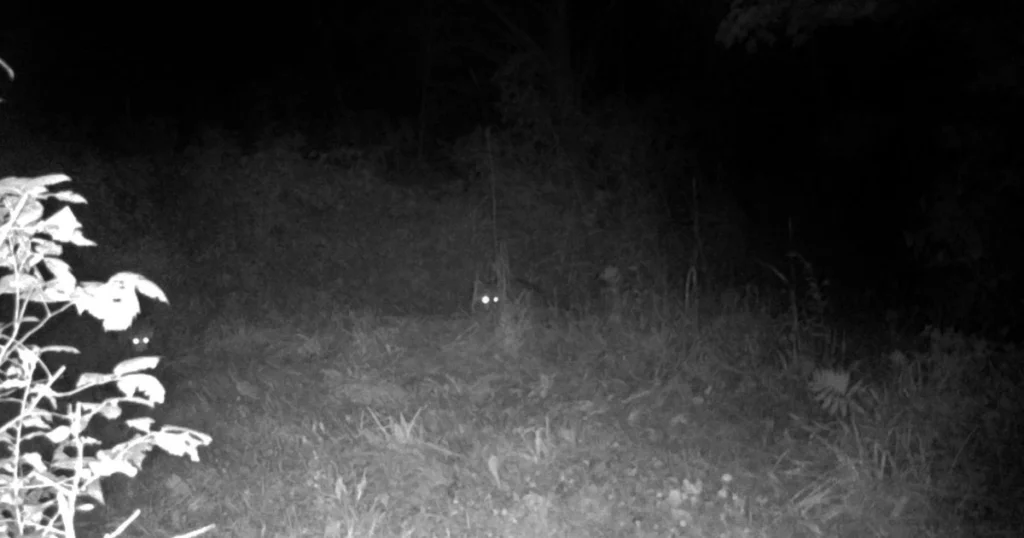
How does raccoon eyesight stack up against other nocturnal animals? Let’s compare them to some familiar creatures of the night.
Owls are widely regarded as having some of the best night vision of any animal. Unlike raccoons, owls can see in almost complete darkness due to their large eyes and highly advanced tapetum lucidum. While raccoons rely on their sense of touch and hearing to complement their eyesight, owls use their exceptional vision to locate and hunt prey precisely. In this comparison, raccoons have solid night vision but don’t measure up to owls in pure visual sharpness.
Cats are also nocturnal hunters, and like raccoons, they have a tapetum lucidum that enhances their ability to see in low light. However, in dim lighting and daylight, a cat’s vision is sharper than a raccoon's. Cats can also see more colors and detect finer details. While raccoons are better adapted for broader environments, a cat’s eyesight is better tailored for detailed hunting in low light.
Bats, unlike raccoons, do not rely heavily on their eyesight. Many bats have poor vision and instead use echolocation to navigate and hunt. Raccoons' eyesight is far superior to bats, especially at night. While bats “see” through sound, raccoons can rely on their actual visual acuity.
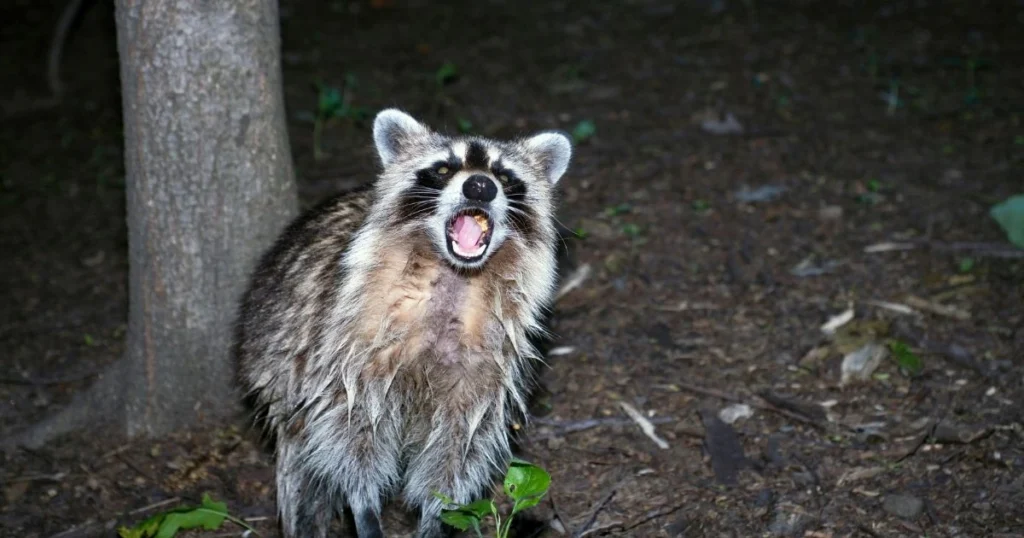
While raccoons are known for their night vision, they cannot see in complete darkness. Like humans and many other animals, raccoons require some light to see. The tapetum lucidum enhances their ability to see in low-light conditions, but they still need the faint glow of the moon, stars, or streetlights to navigate. In pitch-black environments, raccoons rely more heavily on their sense of smell and touch to move through their surroundings.
Raccoons may be clever, but they can cause severe problems for homeowners, especially when they start foraging in garbage or nesting in attics. When dealing with raccoons or other wildlife, seeking professional help is crucial to ensure the animals are removed safely and humanely. Critter Stop, based in North Texas, specializes in humane wildlife removal, including raccoons.
Critter Stop has earned a fantastic reputation and glowing customer reviews for its high-quality work and excellent customer service. They provide comprehensive inspections and use humane methods to remove and exclude wildlife from your property. If raccoons or other pests are causing issues in your home, call Critter Stop at (214) 234-2616 for a free inspection and professional removal services.
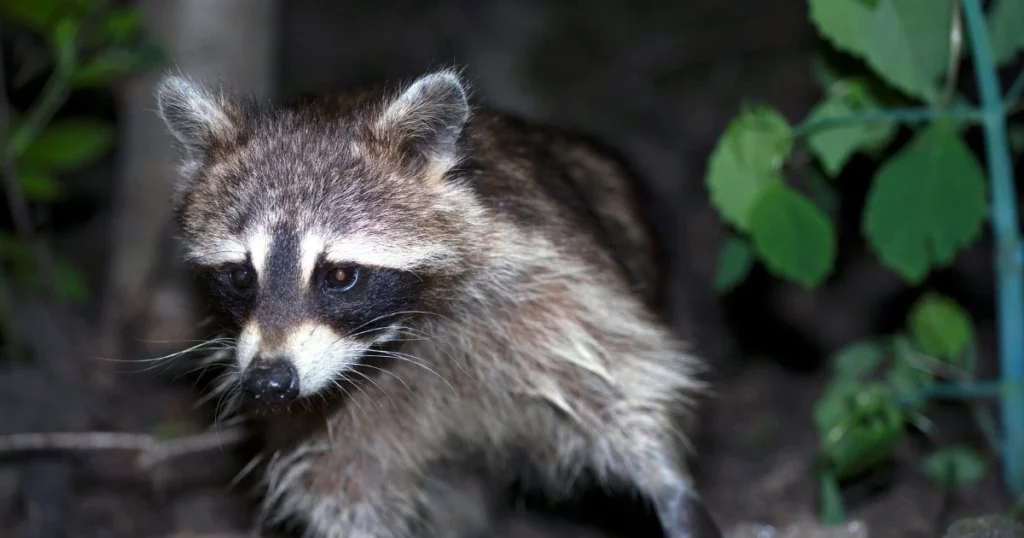
Yes, raccoons have good eyesight, particularly at night. Their eyes are adapted for low-light environments, allowing them to navigate and forage effectively in the dark. With the help of their tapetum lucidum, they can maximize even the faintest light sources, making them proficient nighttime hunters. However, their vision is less sharp during the day, and they rely more on their other senses, such as smell and touch, when light conditions are too bright. This adaptability ensures their survival in various environments, both in the wild and urban areas.
Raccoons are well known for their adaptability, intelligence, and nocturnal habits. If you’ve ever wondered how they navigate so well in the dark or if they see as clearly during the day, this FAQ section will give you insights into raccoon eyesight. Understanding how these animals see can also help you deal with them if they become a problem around your home. If you're dealing with raccoons or other wildlife, Critter Stop can help with humane removal services. Call us at (214) 234-2616 for a free inspection.
Yes, raccoons have good eyesight, especially in low-light environments. Their eyes are adapted to help them forage for food at night, making them highly effective at navigating urban areas where food sources like garbage cans and pet food are readily available. Their tapetum lucidum, a reflective layer behind their retina, allows them to maximize dim light, giving them an advantage in finding food and avoiding predators in urban environments.
Raccoons have several unique visual adaptations that make them excellent nocturnal navigators. Their eyes have a tapetum lucidum, which reflects light through the retina, enhancing their ability to see in dimly lit conditions. Additionally, raccoons can detect motion very well, which helps them sense potential threats or food even when light is scarce. However, raccoons are dichromatic, meaning they only see in two primary colors: moving and contrast, which is more critical than color perception.
Compared to owls and cats, raccoons have less advanced night vision. While raccoons have good low-light eyesight, they rely more on their sense of touch and hearing to compensate. Owls, for example, can see in nearly complete darkness, while raccoons need at least some ambient light to see clearly. Cats also have sharper night vision than raccoons, with better color differentiation and depth perception, but raccoons make up for this with their versatility and problem-solving skills.
Raccoons have very sharp eyesight when detecting movement, especially in low-light environments. Their eyes are more attuned to spotting motion rather than focusing on still objects. This ability helps them locate prey or food sources and avoid predators during the night. Even though they don't have the sharpest detail-oriented vision compared to other nocturnal animals, their ability to detect even the slightest movement is crucial for survival.
No, raccoons do not see as clearly in daylight as at night. Their eyes are primarily adapted for nighttime activities, and they are sensitive to bright light during the day. This sensitivity makes their vision less effective in full daylight, causing them to rely more heavily on their other senses, like touch and smell. While they can still see during the day, their vision is not as sharp or comfortable for them as at night.
Yes, raccoons’ eyesight is adapted explicitly for nighttime activities. Their tapetum lucidum enhances their ability to see in low-light conditions, making them highly effective nocturnal foragers. They rely heavily on their vision at night to navigate and find food. However, during the day, they are more sensitive to bright light, which makes them less comfortable and less effective at visual tasks. Their reliance on vision decreases during daylight hours, making them less active.
Yes, raccoons have weaker eyesight during the day, which forces them to rely more on their other senses, particularly their sense of touch and smell. Their paws are susceptible and help them explore their environment, especially when their vision is less compelling in bright conditions. Their strong sense of smell also helps them find food and avoid danger when their vision is not at its best.If raccoons are causing issues on your property, it's best to call the professionals. Critter Stop offers humane wildlife removal services, ensuring raccoons are safely relocated without harm. Call Critter Stop at (214) 234-2616 for a free inspection and experience their excellent customer service and high-quality work.
Visit our Critter Library and learn more about our furry friends